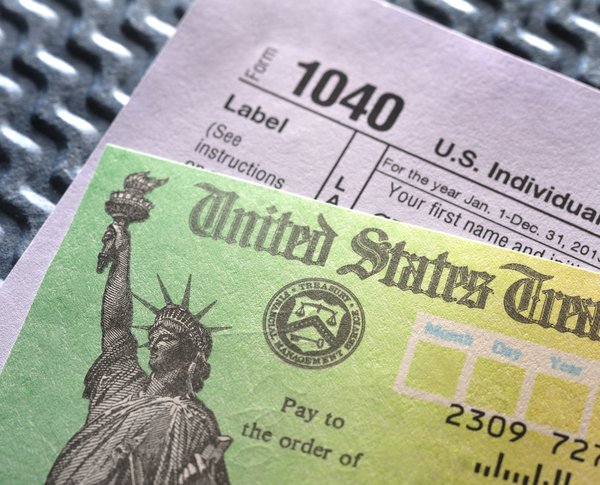The idea of resource depletion has been a common theme throughout much of history, especially in the last century. Look at Amazon deforestation, groundwater supplies, coffee plants, fishing grounds, and even fashion.

They're all part of a concept known as the tragedy of the commons. Here, we'll discuss the tragedy and its history and offer a few examples to consider when assembling or adjusting your portfolio.
What is the tragedy of the commons?
What is the tragedy of the commons?
The tragedy of the commons is a phrase that describes instances when an individual or business prioritizes a public resource to the detriment of others. The concept was introduced by William Forster Lloyd, an economics writer who presented it in an 1833 lecture.
Lloyd cited the example of land -- "commons" -- shared by cattle owners. If one owner allows cows to graze as much as they want, the land would eventually be barren and benefit no one. However, the term wasn't widespread until it was used in a 1968 Science magazine paper by Garrett Hardin, a U.S. ecologist specializing in population issues (including voicing unfortunate support for eugenics).
Hardin wrote the paper at a time when overpopulation was considered a very real and imminent problem; the Science article was published the same year as The Population Bomb, a book written by a Stanford biologist who argued that overpopulation would lead to mass famine, disease, and war, resulting in the deaths of hundreds of millions of people in the 1970s.
A mass die-off failed to materialize, but Hardin's phrase has survived and remains in use, especially in discussions involving the cause of climate change. These days, the tragedy of the commons applies to everything from deforestation in the Amazon to traffic congestion. It's also a topic of discussion among economists.
Elinor Ostrom, a 2009 Nobel Laureate in economics, argued that Hardin's scenario was flawed by failing to consider the possibility that people or businesses can cooperate to ensure common goods are preserved and that common goods are generally shared on terms set by a community.
Examples
Examples of the tragedy of the commons
There are endless examples of the tragedy of the commons in the modern economy. Here are a few recent ones:
- Deforestation. The exploitation of the Amazon rainforest has benefitted Brazilian cattle ranchers and farmers while threatening the rest of the planet's 8.1 billion people because of its outsize role in mitigating climate change. Over the last half-century, the Amazon has lost about 20% of its forests.
- Coffee. Your caffeine habit may be an example of the tragedy of the commons. Overconsumption has led to a loss of coffee plant habitat, threatening 60% of its species (and all of our mornings), including Arabica, the most common type of coffee bean.
- Fashion. A big fan of cheap, trendy clothes, also known as fast fashion? You're part of the tragedy of the commons. Fast fashion relies on toxins that pollute water, dyes and fibers that wind up in the food chain, and a poorly paid workforce that's often mistreated.
- Toilet paper. Remember the COVID-19 pandemic? As the planet sorted out the ramifications, billions of people went into isolation. But first, they stocked up essential items, including toilet paper. The resulting scarcity was a prime example of the tragedy of the commons, with individuals buying far more than needed, causing a shortage that affected everyone.
- Savings & loans. The Federal Savings & Loan Insurance Corp. (FSLIC) was created in 1934 to ensure that depositors wouldn't lose their money if an institution failed. Hardin argued that such insurance made tax dollars part of the commons, incentivizing S&L managers to take excessive risks in the 1980s. Eventually, taxpayers were charged about $160 billion to resolve a crisis, resulting in almost one-third of the nation's 3,200 savings and loan institutions failing.
Solutions
Solutions to the tragedy of the commons in Markets
At its heart, the tragedy of the commons is a failure of the market, caused by the inability to share public resources. Since there's no incentive to use public resources for the benefit of everyone, the costs of overuse and depletion aren't included in the prices of the resources. When public resources are threatened, governments generally intervene in one of three ways:
- Property rights. Since common goods have no property rights, governments can assign ownership to individuals or groups. Governments can also encourage the appropriate use of public goods for activities like grazing land through incentives that ensure sustainability and public welfare.
- Regulations. Governments can also create regulations to protect common goods from overuse and depletion. This is commonly seen in the laws that attempt to curb the overuse of natural resources, such as land development and marine life.
- Taxes and subsidies. Common government tools, such as taxes and subsidies, can be used to discourage overuse and encourage sustainability. Measures recently passed to encourage wider production of electric vehicles and reduce reliance on fossil fuels are examples of subsidies designed to avert a tragedy of the commons. Another example is a proposed measure to impose a 30% levy on Bitcoin (BTC -0.08%) to account for the costs of extra electricity use on communities and the environment.
Related investing topics
Upshot
Upshot of the tragedy of the commons
In a world of finite resources and populated by humans, the tragedy of the commons may well be unavoidable. Whether we like it or not, we live in a society where individuals rely on resources to survive, thrive, and prosper.
Hardin argued in his 1968 paper that "the population problem has no technical solution; it requires a fundamental extension in morality." Absent a change in human nature, governments will be required to step in where individuals, businesses, and organizations threaten to overuse or deplete common goods.
























































